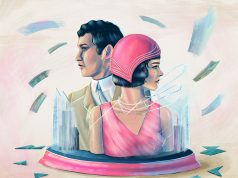Celebrating Women’s Day, we pause to pay tribute to some of the brave and inspiring women who made a mark over the centuries. women in history
Some took over roles as leaders of their people, many battled censure, public opinion and even lost their lives in the battle for change and innovation. Let’s salute them!
Cleopatra, 69 BC-30 BC
Final ruler of Egypt’s Ptolemaic dynasty, Cleopatra remains widely known for her beauty and being respected as a strong, politically savvy ruler who was directly involved in the affairs of a kingdom that faced ongoing challenges on many fronts.
Boudicca, 30–61
Queen of the Iceni tribe during the Roman occupation of Britain, Boudicca led a Celtic revolt against Roman rule. Leading an army of over 100,000 she managed to drive the Romans out of several key points in Britain. Roman emperor Nero even considered withdrawing from Britain, until the Roman governor, Paullinus finally defeated her in a battle.
Hypatia, 355-415
 Hypatia was an Alexandrian mathematician, astronomer and philosopher, whose murder in AD 415 saw her become a martyr for philosophy. She is the first female mathematician about whose life and work we have quite detailed information.
Hypatia was an Alexandrian mathematician, astronomer and philosopher, whose murder in AD 415 saw her become a martyr for philosophy. She is the first female mathematician about whose life and work we have quite detailed information.
Theodora – Byzantine Empress, 497 -548
Although she had a humble and slightly murky past, Theodora gained a lot of influence and guided her husband in many issues, including speaking out for women’s rights and foreign policy. She successfully had property and divorce laws changed to protect women, which was a remarkable achievement in those times. women in history
Joan of Arc, 1412-31
 Joan was born nearly 80 years into the Hundred Years’ War, and the English had taken control of a large part of France. At the tender age of 17 she was sent to the Siege of Orléans to take part in the battle, helping to achieve further French victories and advising on military strategy before being captured by the Burgundians and put into English custody. In 1431, she was found guilty of heresy and burned at the stake.
Joan was born nearly 80 years into the Hundred Years’ War, and the English had taken control of a large part of France. At the tender age of 17 she was sent to the Siege of Orléans to take part in the battle, helping to achieve further French victories and advising on military strategy before being captured by the Burgundians and put into English custody. In 1431, she was found guilty of heresy and burned at the stake.
Catherine the Great, 1729-96 Empress of Russia
 As Russia’s longest-ruling female leader, Catherine ruled the country as it developed, expanded, and strengthened. A patron of arts and a supporter of education, her many reforms saw her become one of the most influential rulers in Russian history.
As Russia’s longest-ruling female leader, Catherine ruled the country as it developed, expanded, and strengthened. A patron of arts and a supporter of education, her many reforms saw her become one of the most influential rulers in Russian history.
Mary Wollstonecraft, 1759–97
English writer and philosopher Mary Wollstonecraft was a strong supporter of education and freedom for women. Her book, A Vindication of the Rights of Woman, was published in 1792 and can be considered one of the first works on modern feminism.
Ada Lovelace, 1815–52
Often regarded to have been the pioneer of computer programming, Ada stood out in her youth for her love of mathematics and science. The only legitimate child of the poet Lord Byron, she was known for her work on Charles Babbage’s early mechanical general-purpose computer, the Analytical Engine. women in history
Florence Nightingale, 1820–1910
 Florence Nightingale was a part of the first official team of British military nurses in Turkey during the Crimean War (1853-56). Known as ‘the Lady with the Lamp’ for the night rounds she made tending to the wounded and sick, she continued in her work after the war and was involved in establishing a permanent military nursing service.
Florence Nightingale was a part of the first official team of British military nurses in Turkey during the Crimean War (1853-56). Known as ‘the Lady with the Lamp’ for the night rounds she made tending to the wounded and sick, she continued in her work after the war and was involved in establishing a permanent military nursing service.
Dowager Empress Cixi of China, 1835-1908
 Empress Cixi rose from being a low-ranking concubine of the Xianfeng Emperor to becoming ruler of China. During her regency of nearly 50 years, Cixi instigated a number of economic and military reforms which helped develop China into a more modern world power.
Empress Cixi rose from being a low-ranking concubine of the Xianfeng Emperor to becoming ruler of China. During her regency of nearly 50 years, Cixi instigated a number of economic and military reforms which helped develop China into a more modern world power.
Emmeline Pankhurst, 1858–1928
Social reformer Emmeline Pankhurst founded the Women’s Social and Political Union to campaign for the parliamentary vote for women. Pankhurst was known to be a powerful and convincing speaker who encouraged thousands of women to demand their democratic rights. She endured 13 imprisonments but gained worldwide recognition.
Marie Curie, 1867–1934
 Polish born Marie Curie dedicated her life to science, and alongside her French husband, Pierre Curie, discovered and explored the effects of radioactivity. Their research uncovered its value in the treatment of cancer.
Polish born Marie Curie dedicated her life to science, and alongside her French husband, Pierre Curie, discovered and explored the effects of radioactivity. Their research uncovered its value in the treatment of cancer.
During the First World War she helped to install X-Ray equipment in ambulances and often drove them to the front line herself. She was the first woman to win a Nobel Prize and the first person to win a second Nobel Prize. women in history
Marie Stopes, 1880–1958
Marie Stopes was an advocate of birth control and sex educator born in Edinburgh. She published the highly popular books Married Love and Wise Parenthood. She set up the first birth control clinic in a poor working-class area of north London in 1921.
Amelia Earhart, 1897–1937
 Amelia Earhart took up aviation at the age of 24 and went on to break the women’s altitude record the following year. In 1932 she became the first woman to fly solo across the Atlantic, then she became the first person to fly from the Red Sea to India. She was reported missing on 2 July in the Pacific, making her disappearance one of history’s unsolved mysteries.
Amelia Earhart took up aviation at the age of 24 and went on to break the women’s altitude record the following year. In 1932 she became the first woman to fly solo across the Atlantic, then she became the first person to fly from the Red Sea to India. She was reported missing on 2 July in the Pacific, making her disappearance one of history’s unsolved mysteries.
Grace Hopper, 1906-92 Computer scientist
Grace Hopper was one of the leading players in the computer field, having already become the first woman to earn a PhD in mathematics from Yale University in 1934. While at Harvard, and then in the US Navy, Hopper worked on the very earliest computers and later developed COBOL, the commercial programming language.
Mother Teresa, 1910–97
Mother Teresa, born in Macedonia to Albanian parents, was a Roman Catholic nun who lived in India for most of her life. She founded the Missionaries of Charity, run by sisters who took vows of chastity, poverty, obedience and free service to the poorest of the poor.
Rosa Parks, 1913–2005
 Showing immense bravery in the face of extreme racism, Africa-American immigrant Rosa Parks challenged existing rules in 1955 by refusing to give up her bus seat to a white passenger in Montgomery, Alabama.
Showing immense bravery in the face of extreme racism, Africa-American immigrant Rosa Parks challenged existing rules in 1955 by refusing to give up her bus seat to a white passenger in Montgomery, Alabama.
This move received support from many African Americans and sparked the civil rights movement, leading to equal rights being granted in the 1960s.
Hedy Lamarr, 1914 –2000
 The Golden Age actress was also an inventor who was credited for helping to co-invent a radio signaling device, known as the Secret Communications System. The system changed radio frequencies to confuse and obstruct enemies during World War II and it’s still a part of how we communicate wirelessly today.
The Golden Age actress was also an inventor who was credited for helping to co-invent a radio signaling device, known as the Secret Communications System. The system changed radio frequencies to confuse and obstruct enemies during World War II and it’s still a part of how we communicate wirelessly today.
Katherine G. Johnson, 1918 – 2020
Katherine Johnson was a mathematician who came up with the complex calculations that helped us fly into space. In 1969, she played a role in sending the first man to the moon. Her work is highlighted in the film Hidden Figures, about the women at NASA.
Rosalind Franklin, 1920–58
When the double helix structure of DNA was discovered, the crucial piece of evidence was provided by the expert crystallographer Rosalind Franklin.women in history
The discoveries that followed, such as mapping the human genome, test-tube babies, and genetic engineering all depended on understanding the chemical foundations of heredity.
Wangari Maathai, 1940-2011
 Wangari Maathai was a Kenyan environmental activist and Nobel Peace Prize winner who founded the Green Belt Movement which campaigned for the planting of trees, environmental conversation and women’s rights.
Wangari Maathai was a Kenyan environmental activist and Nobel Peace Prize winner who founded the Green Belt Movement which campaigned for the planting of trees, environmental conversation and women’s rights.
The first woman in East and Central Africa to earn a doctorate degree, her contribution to sustainable development, peace and democracy was internationally recognized when, in 2004, she became the first African woman to receive the Nobel Peace Prize.
15 Things You Don’t Know You’re Saying That Make Women Feel Less





